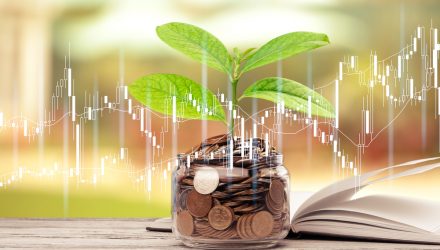Recent research from Arizona State University has found that environmental, social, and governance investing doesn’t cost investors returns by any statistical significance, reported Institutional Investor.
The finance professors who wrote the paper created a portfolio that generated average returns of 14.6% and then laid an ESG screen on top of it. This screen removed any securities with lower than average ESG scores to create a portfolio that tilts towards ESG; average returns for the new portfolio were 12.5%.
“It’s not statistically significant,” said Seth Pruitt, ASU finance professor. “The ESG-tilted portfolio is not doing significantly worse than the original portfolio, and that tells us that the cost of ESG investing is small.”
Implementing an ESG screen affected the portfolio’s Sharpe ratio very little: the Sharpe ratio is a means of gauging an investment’s returns in relation to its risk; the original ratio was 1.46, and the ESG screen came back at 1.52. It indicates that the slight loss of returns and slight movement of the Sharpe ratio is minimal for investors looking to pursue ESG priorities.
The authors pulled data from four different ESG data providers as the data types and amounts vary widely due to lack of regulation.
“Since there can be disagreement among ESG data providers and investors may consult different sources, we combine information from multiple data providers to create an ‘uncontroversial’ ESG measure, which identifies sets of companies on which the various providers generally agree,” Lindsey, Pruitt, and Schiller wrote.
While the current investment environment equates to very little cost to invest in ESG, returns would only be expected to grow for ESG tilted investments if regulations and standardization were to happen.
“If there is some kind of coordination from the markets or regulation, all of the investors would then punish certain stocks — the same stocks,” Pruitt said. “At that point, we would expect ESG would give rise to noticeable expected returns in the near future.”
ESG Investing with SPDR
The SPDR S&P 500 ESG ETF (EFIV) takes a holistic approach to ESG investing by focusing on the environmental aspect of ESG and sustainability across the social and governance practices of the companies it invests in.
The fund tracks the S&P 500 ESG Index, which selects from top companies that meet ESG criteria within the S&P 500 while also adhering to the sector weights of the S&P 500 Index.
EFIV utilizes SPDJI ESG scores to rank companies based on their sustainability. This score is derived from analyzing a thousand data points covering various topics collected from companies and then asking roughly 120 questions, according to the S&P Global website.
EFIV excludes tobacco and controversial weapons companies, those that generate power from coal or derive 5% or more of their revenues from thermal coal extraction, and companies that score low on the United Nations Global Compact standards.
The ETF’s top three sector allocations include 32.34% in information technology, 14.86% in consumer discretionary, and 12.16% in healthcare, as well as several other smaller allocations.
EFIV has an expense ratio of 0.10%, making it one of the cheapest ESG ETFs on the market.
For more news, information, and strategy, visit the ESG Channel.

